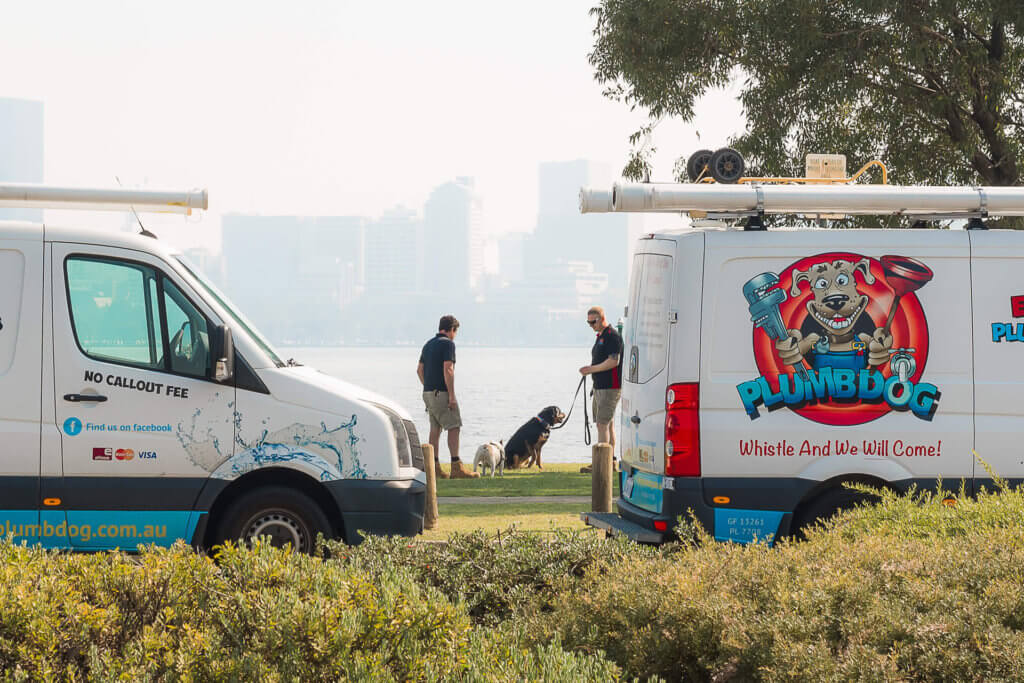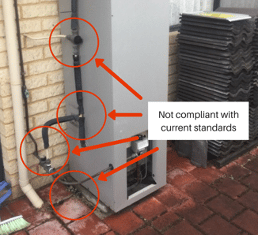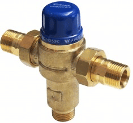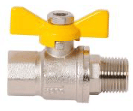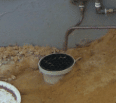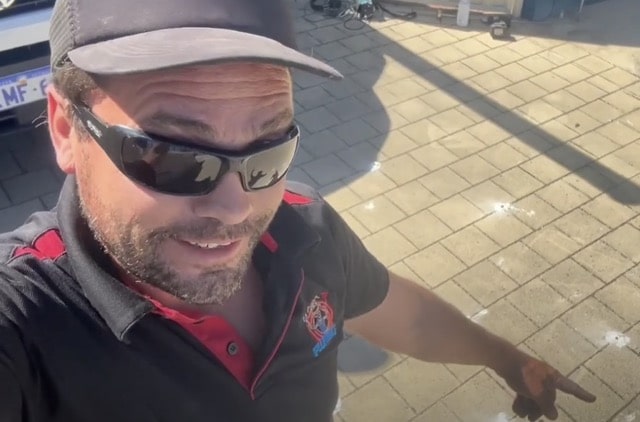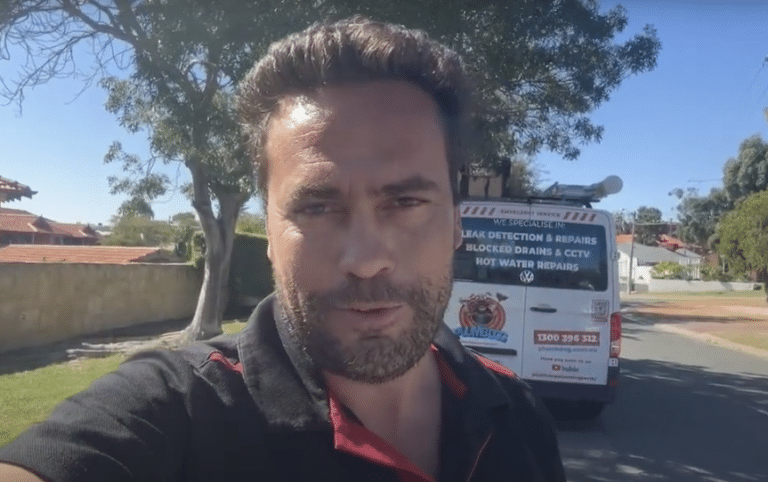Hot water systems are made to last anywhere from 6-15 years. Over this time, safety regulations have changed in both the plumbing and gas worlds.
There are a lot more items we need to check to make sure installations are compliant.
To most, in this picture, everything looks fine… but there are multiple non-compliance issues.
Before (Non Compliant Existing Hot Water System Installation)
We were recently requested to replace this unit and in doing so we needed to bring this install up to standard.
For the new unit we needed to install a heat trap, a tempering valve, an expansion control valve, 2 drains and a soak pit under each drain. We also needed to add a gas shut off valve.
For some units, there will be even more that needs to be done, like the addition of a concrete slab under the unit…
After (Compliant Installation)
This is what the pipework looks like after all the new standards have been applied to the new install.
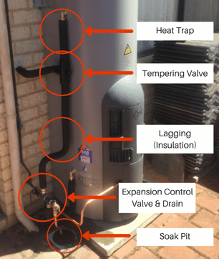
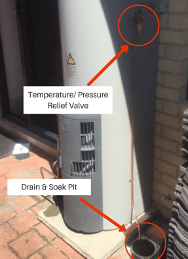
Continue reading to find out what each one of these items does to protect your system and house…
Heat Traps
Heat traps are valves and or loops of pipe installed on the cold water inlet and hot water outlet pipes on hot water systems. They allow cold water to flow into the system, but prevent hot water from flowing out of the system back up the cold water pipes.
Read the technical note from the Plumbers Licensing Board (Heat Traps – p6)
Tempering Valves
A tempering valve ensures your hot water is at a safe temperature for personal hygiene use. A tempering valve has a temperature sensitive element which adjusts the level of cold water depending on the temperature of the water from the hot water system.
Regulations on safe water services are Australia-wide and fall under the Plumbing Code of Australia (PCA). The water in a hot water storage system must be kept at a minimum of 60°C (AS3500.4.2 Clause 1.6) to prevent bacteria. The maximum temperature water can leave the tap is 50°C (AS3498) and a maximum of 45°C in institutions such as early childhood centres, schools, and nursing homes or other facilities where the young, sick, aged or disabled could be using hot water.
A tempering valve or other tempering device reduces your hot water temperature at the tap, to allow you to meet both Australian standards.
Tempering Valves should be replaced every 4 years.
Expansion Control Valves
Expansion Control Valves limit the maximum pressure in a pressurised, unvented water heater system by relieving excess pressure to the drain line.
Expansion Control Valves should only be installed on the cold or inlet installation on a water heater as the valve is primarily intended to cope with the excess pressure generated during a normal heating cycle.
Expansion Control Valves are safety valves and should be replaced every 4 years.
Temperature/Pressure Relief Valves
Temperature & Pressure Relief Valves are safety controls which ensure that the temperature of the water in a pressurised unvented water heater cannot exceed 99° C in the event that the normal thermostatic controls fail.
These valves may be used to guard against overtemperature and over-pressure hazards wherever water is stored in unvented containers. This is a requirement of Australian Standard AS 3500-4.
Temperature & Pressure relief valves are safety valves and should be replaced every 4 years.
Gas Shut Off Valves (not shown above)
Allows the manual isolation of the gas flow in natural gas and LPG systems. In the open position (gas is flowing) the handle (lever) will be parallel with the pipe, when it is closed (gas not flowing) the handle (lever) will be perpendicular to the pipe.
Soak Pits
Required so that the release of steam or hot water is controlled and does not cause a nuisance, is readily noticeable and will not cause damage to buildings or injury to persons.
Some units will require two pits to be installed and they should have gravel placed in the bottom. One pit for the Expansion Valve and one for the Temperature & Pressure Relief Valve.
Gas Pressure Tests
As replacing a hot water system involves touching the gas lines, a gas pressure test will need to be carried out to ensure that the system and pipework is gas-tight.
After your system has been replaced
Your hot water system should be serviced every two years to make sure it continues working efficiently.
Read our post about anodes to learn more about how a storage hot water system works.
If you have any questions, please feel free to give Plumbdog Perth a call – 1300 884 146

